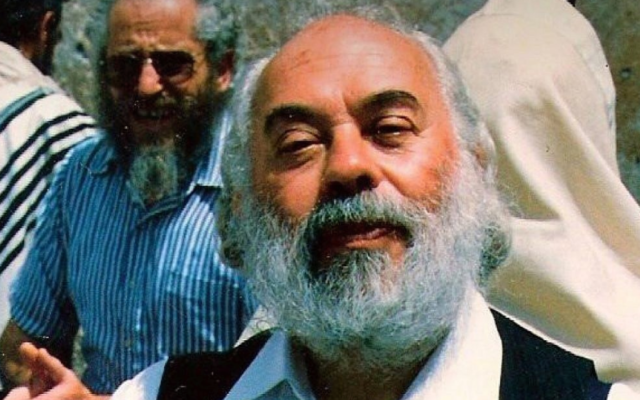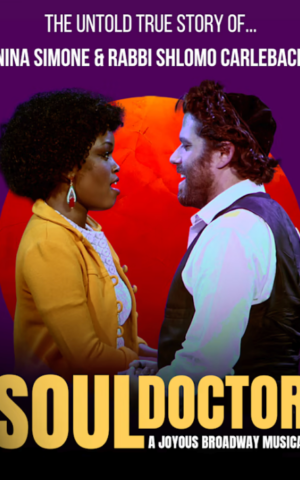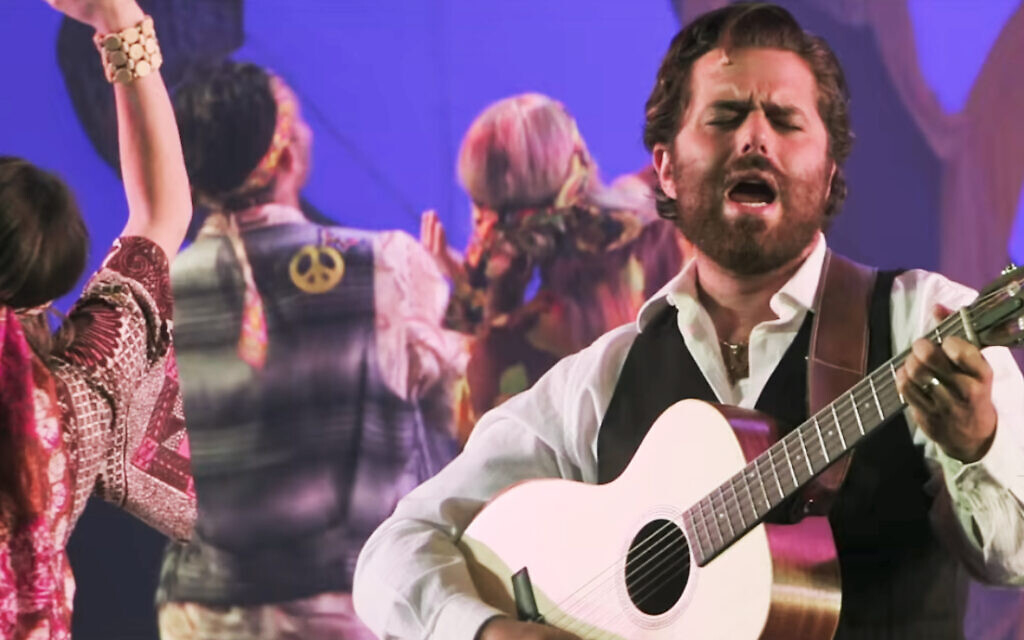‘Soul Doctor’ Honors Legacy of Rabbi Shlomo Carlebach
National screening in June was a reminder of the considerable influence he’s had on Judaism over the last 70 years.

Theater audiences across the country were treated to a reminder of the innovative style of the influential Hasidic composer and performer, Rabbi Shlomo Carlebach, last month. Fathom Events, which delivers special programming to the nation’s leading motion picture theaters presented “Soul Doctor” in more than 600 theaters, including 11 in the metropolitan Atlanta area.
The show, one of the few Broadway productions in recent years to highlight an important American Jewish religious figure, follows Carlebach’s evolution as the son of an important family of German Orthodox religious leaders to his development as an American “rock-star Rabbi” as the production describes him.
To help put more soul in “Soul Doctor,” the producers have emphasized a chance meeting that occurred in 1957 between the rabbi and Nina Simone, a popular figure in mid-century American music. The production, which listed Nina Simone’s daughter as an executive producer, credits the African American performer as having played a critical role in Carlebach’s emergence as a leading voice in the post Holocaust Jewish world.

“Soul Doctor” was written and directed by Daniel Wise with lyrics to over 30 of Carlebach’s melodies by David Schecter. The recording of the stage production was originally performed in 2018 during the Israel Festival in Jerusalem. The show stars Tony nominee Josh Young as Shlomo, Nya Trysha as Nina, and a supporting cast of veteran Broadway performers.
The film won Best Picture at the New York Kwanzaa Film Festival and was the feature presentation at this year’s Bloody Sunday Bridge Crossing in Selma, Ala.
While the show pays tribute to Carlebach’s Hasidic niggunim or “wordless tunes” and Simone’s gospel melodies, in reality, Carlebach absorbed a wide range of influences. In addition to Simone, he appeared on stage with Bob Dylan, Joni Mitchell, Jerry Garcia, Pete Seeger, the Grateful Dead, and many others.
For seven years, he partnered with Rabbi Zalman Schacter-Shalomi, one of the founders of the Jewish Renewal movement. From 1968 to 1974, they created works in a religious commune in San Francisco’s Haight Ashbury neighborhood called the House of Love and Peace. It was an ambitious attempt to reach a new generation of American Jews in search of spiritual fulfillment. Although Carlebach was born into a very traditional Jewish Orthodox family, as an adult he embraced many of the teachings of Hasidism, with its emphasis on fully serving G-d and reaching out to other Jews lovingly and joyfully.
The commune fused the many influences both men shared as survivors of the pre-Holocaust European tradition with those from a new, post-war Jewish spiritual revival in America. Although, in recent years, his legacy has been damaged by allegations of sexual misconduct, the wide-ranging influence of his work remains. It even received a re-evaluation in Atlanta during the American Jewish Historical Society’s Scholars Conference here in 2014.
A prominent observer of contemporary American Jewish life, Shaul Magid, described Carlebach’s profound influence during the latter half of the 20th century. Writing in “A New Hasidism,” a 2019 anthology, Magid credits Carlebach with reinvigorating a post-war Judaism. He wrote that he helped create new spiritual life in the Diaspora by giving Jews “their hearts back, by making them feel again, walk again, pray again.”

Although he couldn’t read music, he composed an impressive library of more than 25 recorded albums, ranging from the pair of Vanguard folk albums produced in New York to material created in Europe and Israel. Amateur recordings of many of his performances have circulated privately over the years as well. His melody “Am Yisrael Chai,” The People of Israel Live, became the anthem of the movement to free Soviet Jewry in the 1970s and 80s. In 1995, Pope John Paul II used Carlebach’s composition, “Brothers and Friends,” to open a ceremonial mass at Giants Stadium in New Jersey.
His fans can be found across a broad cross section of Jewish life, from secular Jews to the most pious among the Orthodox community. It’s believed that as many as 100 synagogues based on his music and his teachings have been established over the years around the world.
Carlebach died suddenly of a heart attack in 1994 at the age of 69. At his funeral in New York, 2,500 people overflowed the streets outside his synagogue. When he was buried in Israel, the chief rabbi of the Ashkenazic community there attended.
It’s a phenomenon that impressed Ari Goldman, who wrote his obituary when he was a reporter for the New York Times.
“I’m always amazed by how much Shlomo lives,” Goldman pointed out, “and how much his music affected his time and our time. It is very much ingrained in our liturgical life, our celebratory life and our musical life.”
- Arts and Culture
- film
- Bob Bahr
- Opinion
- Rabbi Shlomo Carlebach
- Fathom Events
- Soul Doctor
- Nina Simone
- Daniel Wise
- David Schecter
- Israel Festival
- Josh Young
- Nya Trysha
- New York Kwanzaa Film Festival
- Bloody Sunday Bridge Crossing
- Bob Dylan
- Joni (Mitchell)
- Jerry Garcia
- Pete Seeger
- The Grateful Dead
- Rabbi Zalman Schacter-Shalomi
- House of Love and Peace
- Haight Ashbury
- American Jewish Historical Society’s Scholars Conference
- Shaul Magid
- Pope John Paul II



comments